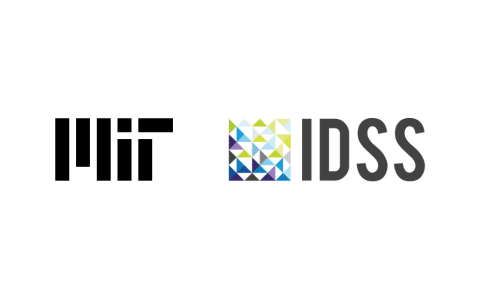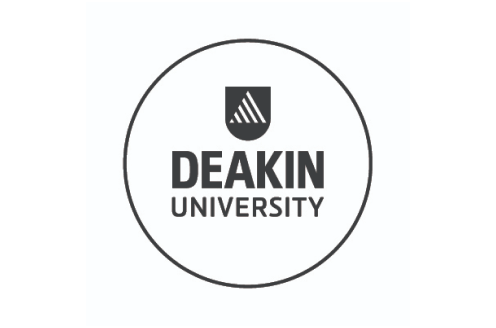Kaggle Competition
Join this online free Kaggle Competition course to get introduced to the Kaggle platform. Learn why it is an excellent choice for the coders to interact and build their expertise in data science by using datasets, and code files.

Ratings
Level
Learning hours
Learners
Skills you will learn
About this course
This course will first introduce you to the basics of Kaggle. Next, you will learn about the Kaggle community and the various courses available to learn. Later, you will get familiar with some important topics such as Kaggle datasets and code files. Moving ahead, you will experience your first Kaggle competition. At the end of the course, you will code on IPL Kaggle data. Once you finish this free course, take the quiz and earn a completion certificate.
Are you ready to learn Kaggle Competition? Look no further! Our professional Data Science course covers every skill you need to become an accomplished expert in the domain.
Course Outline
In the first module of the course, you will be provided with an introduction to Kaggle. Questions such as what Kaggle is, the importance of Kaggle, the different uses of Kaggle, and the benefits of Kaggle are answered.
This module talks about the Kaggle community and the benefits offered by the community. The community allows the coders to interact with each other and work on their skills as a collective entity. You will also get to know about different courses available that can be used for learning purposes.
This module will guide through the use of Kaggle Datasets, the process of importing datasets already available on Kaggle, the use of code files, the method of downloading such files, and the process of uploading new code files.
In this module, you will get to know about different competitions held by the Kaggle Platform. You can learn and upgrade your skills by participating in such competitions. By the end of this lecture, you will be able to appreciate the various opportunities provided by Kaggle.
This module will provide you with a demonstration of using Kaggle to code on IPL datasets. With the help of this example, you will be able to appreciate the importance of Kaggle in simplifying the process of developing machine learning models using data sets. You can follow the tutorial for a better understanding.
 UPGRADE
UPGRADE
Recommended university programs
What our learners enjoyed the most
Curriculum
100% of our learners found our curriculum helpful
Instructor
75% of learners liked instructor's teaching style
Skill & tools
75% of learners found all the desired skills & tools
Topic depth
75% of learners liked the in-depth coverage of topics
Easy to Follow
75% of learners found the course easy to follow
Frequently Asked Questions
Will I receive a certificate upon completing this free course?
Is this course free?
What are the prerequisites required to learn the free Kaggle Competition course?
No prerequisites are required to learn this free online Kaggle Competition course.
How long does it take to complete the free Kaggle Competition course?
The total duration of the free online Kaggle Competition course is 1 hour. You can learn the course at your convenience since it is self-paced.
Will I have lifetime access to the free Kaggle Competition course?
Yes, Great Learning provides lifetime access to any of its free online courses, provided you have enrolled successfully.
Other Data Science tutorials for you
Kaggle Competition
Kaggle, a subsidiary of Google LLC, can be defined as a web community of data scientists, data science enthusiasts, and machine learning practitioners. Kaggle allows users to hunt out and publish data sets, explore and build models during competitions while working with other data scientists and machine learning engineers on a web-based data science environment to unravel data science challenges.
Let’s understand Kaggle a bit about what kind of competition we can have on Kaggle because Kaggle has many competitions. We can participate in any of them according to our interests.
Common Competition Types
Featured: Featured Kaggle data science competitions are the kind of competitions that Kaggle is perhaps best known for. Featured competitions attract a number of the foremost formidable experts and offer prize pools going as high as 1,000,000 dollars. However, they continue to be accessible to anyone and everybody.
Research: Research competitions are another common sort of competition on Kaggle. Research competitions have more innovative problems than featured competition problems, for instance. Research competitions with more innovative problems usually offer prizes or points thanks to their experimental nature. But they offer an opportunity to hold on to problems statements that don’t have a clean or easy solution and are vital to a designated domain or area through a slightly less competitive environment.
Getting Started: Getting started with competitions is the simplest, most most straightforward way to enter Kaggle competitions. Being a semi-permanent competition, they are employed only by new users just getting their foot in the door within the field of machine learning. They provide no prizes or points. Due to their long-running nature, Getting Started competitions are perhaps the foremost heavily materialized problems in machine learning - just what a newcomer must get started!
Digit Recognizer: Getting Started competitions to have two-month rolling leaderboards. Once a submission is quite two months old, it'll be invalidated and not count towards the leader board. Beginners can leverage the Kaggle Learn platform and engage in several available tracks, and it fits for those who are curious about free hands-on data science learning, from pandas to deep learning. You’ll learn all the talents you would like to dive into Kaggle Competitions.
Playground: Playground competitions are a kind of “for fun” Kaggle data science competition that is more difficult than Getting Started. These competitions always provide relatively machine learning tasks and are similarly targeted at newcomers or Kagglers curious about practicing a replacement problem during a lower-stakes setting. Prizes for this type of Kaggle data science competition range from kudos to small cash prizes. Some samples of Playground competitions are:
Other Competition Types
Recruitment
In Recruitment competitions, only individuals can compete to create machine learning models for corporation-curated provocations. At the competition’s ending time, interested participants can upload their resumes for consideration by the company or organizations for their future recruitment. The prize is (potentially) an employment interview at the corporate or organization hosting the competition.
Annual
While not a stringent competition type fundamentally, Kaggle preserves two-yearly competition.
Limited Participation
Kaggle rarely hosts competitions with limited participation, and these competitions are mostly private or in which only invited persons can participate.
Beneath are some special Kaggle competition formats available.
Simple Competitions: Simple competitions follow the quality Kaggle competition format. During a simple competition, users can access the entire datasets at the start of the competition after accepting the competition’s rules. As a participant, you have to download the information or data provided by the organizer, build models locally or in Notebooks. You will generate a prediction file, and after that, you will upload your prediction files as a submission on Kaggle. On Kaggle, most competitions follow this format.
Two-stage Competitions: The challenges are split into two parts in two-stage competitions. Stage 2 is built on the results achieved from Stage 1, and stage 2 engages in replacing the test dataset that's released at the beginning of the stage. Eligibility for Stage 2 generally needs making a successful submission in Stage 1. In two-stage competitions, it’s essential to read and understand the competition’s specific rules and timeline, which varies for each competition.
Code Competitions: Some competitions are code competitions. All submissions are made up of inside a Kaggle Notebook in these competitions, and it's impossible to upload submissions directly to the competition.
These competitions have two attractive features. The competition is more stable, as all users have commensurate hardware allowances. And therefore, the winning models lead to be far more straightforward than the winning models in other competitions such as Code Chef and code forces, as they require to run the code within the compute constraints imposed by the platform.
Code competitions are generated with their unique attributes(constraints) on the Notebooks you'll submit. These could also be restricted by attributes like CPU or GPU runtime, capacity to use obvious data, and access to the web. to find out the constraints you want to adhere to, review the wants for that specific competition.















.png)







.jpg)
.jpg)

















